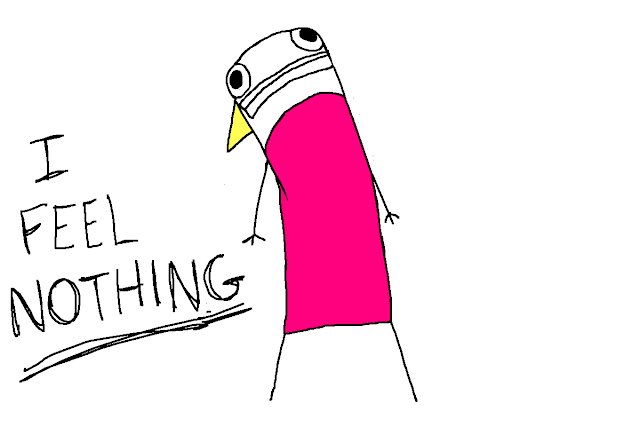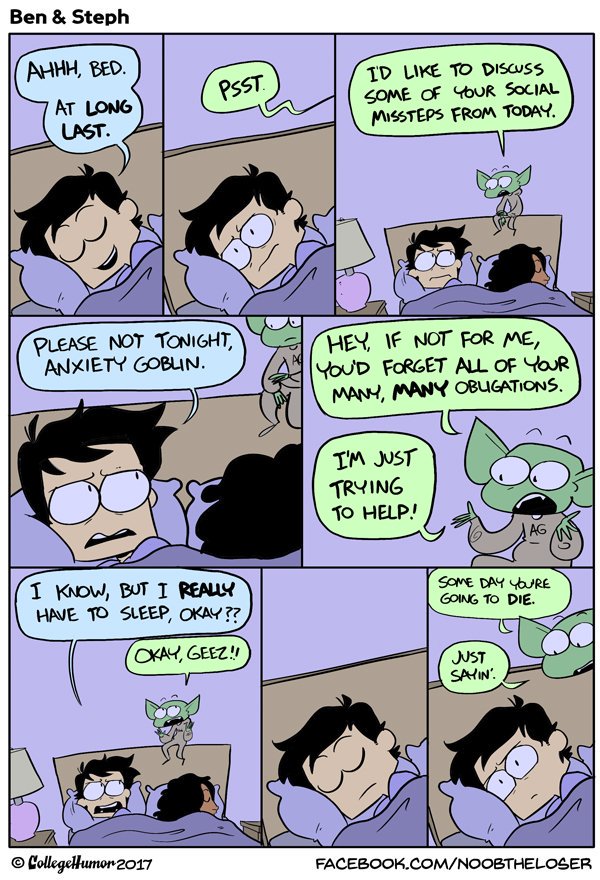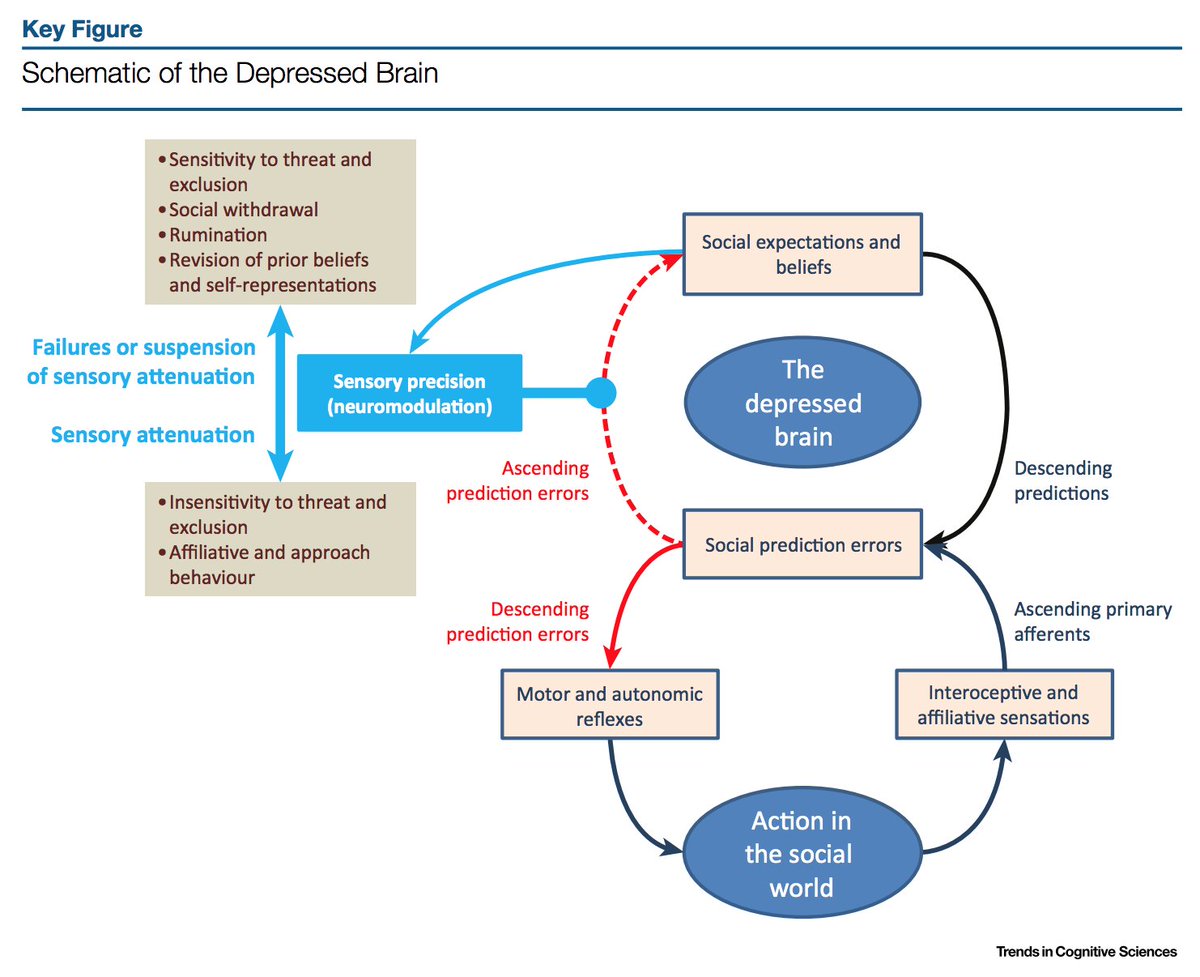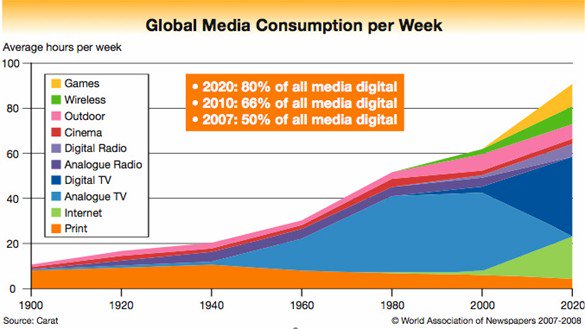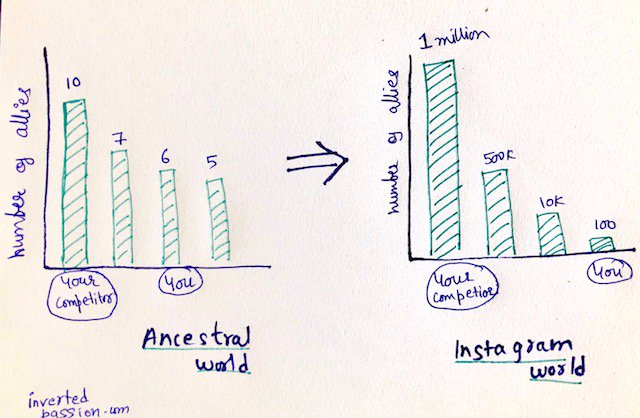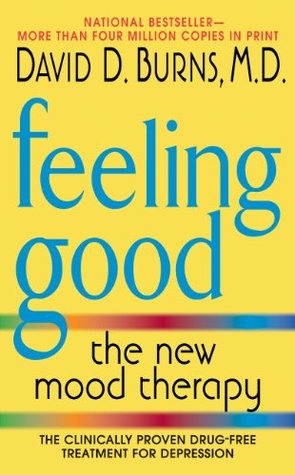I hope that these deaths don’t go in vain but serve as a wake-up call for the rest of us
This figure is shockingly high and doesn’t match with our everyday experience. You surely would have noticed when people you know were mentally not well.
Depression and anxiety are these weird invisible monsters that usually only the sufferer can see. Talking about these things in public is an unfortunate taboo that I wish goes away.
In fact, research suggests that humor and depression may be related journals.sagepub.com/doi/abs/10.117…
- First part: hyperboleandahalf.blogspot.com/2011/10/advent…
- Second part: hyperboleandahalf.blogspot.com/2013/05/depres…
If you're going through a depressive or anxiety episode, please consult a medical professional now.
Let's take a quick tour of the brain.
When we see a fruit, our brain generates dopamine that literally makes us salivates. That’s the brain’s way of saying to us: go, have that fruit.
slatestarcodex.com/2018/03/04/god…
If brain convinces itself that no action can influence the world, it gets into the mode of taking less risk, conserving energy cambridge.org/core/services/…
Anxiety could be a vague belief that the external world is uncontrollable, so brain keeps on churning questions trying to convince itself one way or another
I recommend reading this paper: The Depressed Brain: An Evolutionary Systems Theory researchgate.net/profile/Paul_B…
As compared to 1950s, today’s high school and college students are five to eight times more likely to be depressed or have an anxiety disorder.
psychologytoday.com/us/blog/freedo…
This loss of control is what’s cited as the primary reason for the rise of depression in recent decades.
Today always know of people who are an order of magnitude better than us in all aspects that we care about.
Also, In our ancestral environments, we observed people upfront and we knew their flaws
Today, everyone we know is living the perfect life on Instagram
Yesterday, I had tweeted and people sent me fantastic suggestions on how they overcome depression or prevent it from escalaing.
Go through this thread first:
Excercise is proven to almost always improve the mood. Starting an exercise regimen when you’re depressed is usually difficult because at that point of time, you’re not motivated to do anything.
Make it into a habit, so that you won’t have to force yourself to exercise when you need it most. I’ve written about how to start new habits in a post earlier invertedpassion.com/science-of-set…
Depression and anxiety is a prediction problem where we predict things won’t turn out to be good so we avoid acting. An antidote to this is to force yourself to do things things that other people enjoy.
So if you adopt a habit of treating yourself every time you feel low, you’ll discover that your predictions were wrong.
If your Instagram feed is full of people like you who have a million followers, no wonder you’ll feel like shit.
CBT’s main premise is that depression is a cognitive bias and it urges you to reason negative emotions through intellect. I’ve written earlier on how to avoid cognitive biases. invertedpassion.com/hacks-to-avoid…
I LOVE using triple column technique pro.psychcentral.com/psychoeducatio…
Meditation is known to give calm and peace, and if you exercise your physical body regularly, there’s no reason why you shouldn’t do a favor to your mind and start meditating every day.
To be in a good shape, we do many preventive interventions: take vitamins, change our diet, go to gym, and start running/walking. Consider doing the same for your mental health.
Here's the one for this tweet storm: invertedpassion.com/building-menta… <- SIGN UP HERE to get email updates
RT and share this thread with your friends!
